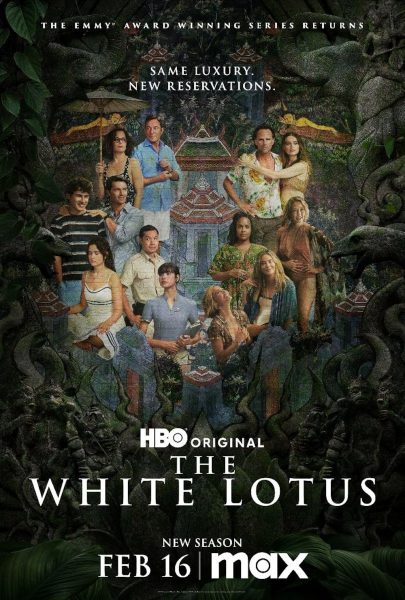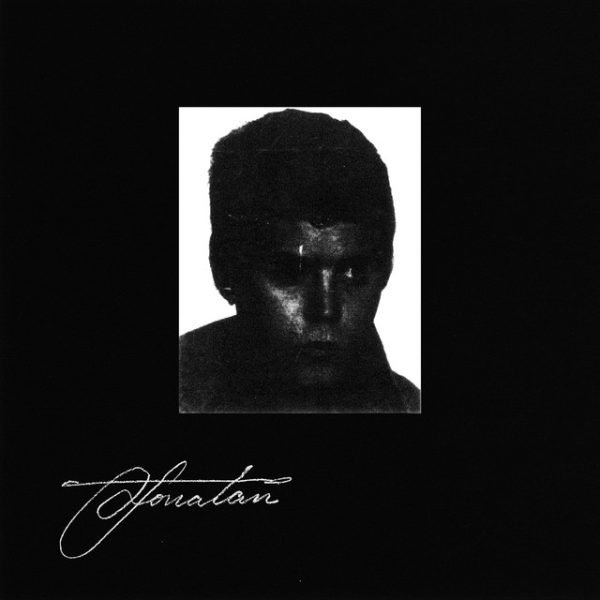“Phasers on Stun”: Star Trek’s Diplomatic Approach to Politics
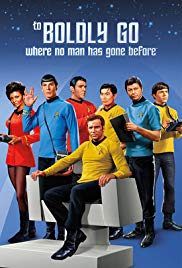
It’s the 1960s, you turn on the TV to see familiar faces such as Dick Van Dyke, Andy Griffith, and the Brady Bunch. Shows of the time were all mainly child friendly. There wasn’t necessarily anything analytically wrong with these shows, but they seemed to ignore what was happening outside of their own worlds… then BOOM, Star Trek threw the world of TV on its head!
Following the journey of the starship Enterprise, it was filled with strange new planets, alien species, and interesting characters. It was totally ahead of its time in terms of special effects, and for taking place in space, the show took a lot of inspiration from real world political issues of the time. Star Trek: The Original Series tackled the political issues of the 1960s in a mature way.
Star Trek wasn’t afraid to discuss topics such as the civil rights movement. In an interview with the Humanist, Gene Roddenberry (the show’s creator) discussed how he wanted to make the cast as equal and biracial as possible. Because that’s where he felt the world should be in the 23rd Century. Having members such as Uhurha, Chekov and Sulu was all part of his plan.
There were other shows at the time that had POC actors such as I Spy, and Daktori, but they didn’t delve into the world of politics as Star Trek did. Never once in the show does anyone look at the camera and say something along the lines of, “Just a reminder that everybody’s equal!” It was subtle in the way it dealt with the issue of equal rights.
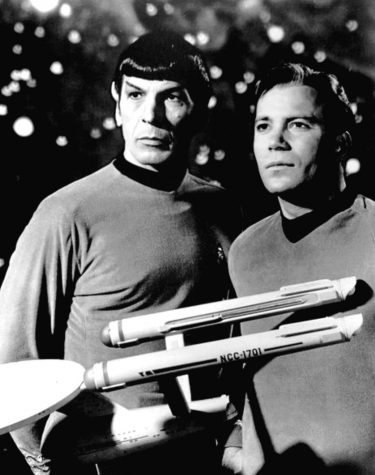
Photo courtesy of Wikipedia
Through the character’s choices, we can understand what the show’s underlying themes were. On most episodes, unless the ship’s readings indicate a threat, Captain Kirk always says, “Phasers on stun.” In episodes where the Enterprise encounters new life with their own governments, Kirk only uses violence and intimidation as a last resort. Unlike for example, Christopher Columbus’ first encounters with the natives. It’s clear the actions of the crew are written to be very different then the actions of those who sought out violence as a Plan A.
Now I want to start this point by saying that I can’t prove it, and I haven’t read anything backing it, but it seems that Star Trek’s United Federation of Planets itself is a political jab at the League of Nations. The League of Nations was founded after World War One in 1920. It lasted 26 years until it was disbanded and replaced with the United Nations (U.N.) in 1946 after World War Two. Both were designed to keep other countries in check, and deal with conflicts more peacefully. This didn’t work with the League of Nations, evident with the fact that World War Two happened.
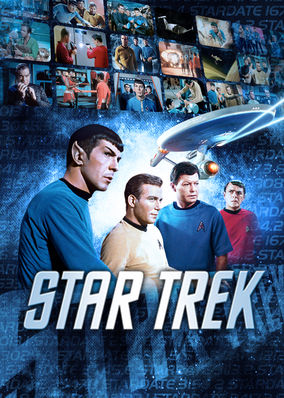
Star Trek was released exactly twenty years after the United Nations was founded. At the time, I’m sure many Americans were wary of the idea of the U.N., especially since we voted to not be a part of the League of Nations, and the League didn’t work. The United Federation of Planets has been around for hundreds of years in the Star Trek universe, and is presented as a force of good. It appears that Roddenberry was trying to tell political leaders around the world to get their act together and maybe the fictitious world presented in Star Trek might become a reality.
Star Trek wasn’t the first show to delve into the world of politics. Actually, film’s origins can be traced back to political propaganda. But it was the first to allude to its political themes, instead of attempting to persuade the viewer into believing the same principles. It reminded us to treat each other with respect. One could say that Star Trek: The Original Series boldly went where no other TV show had gone before.

"This is where the fun begins." If you're a big fan of film, TV, or the world of entertainment as a whole, you've come to the right place. This will be...

